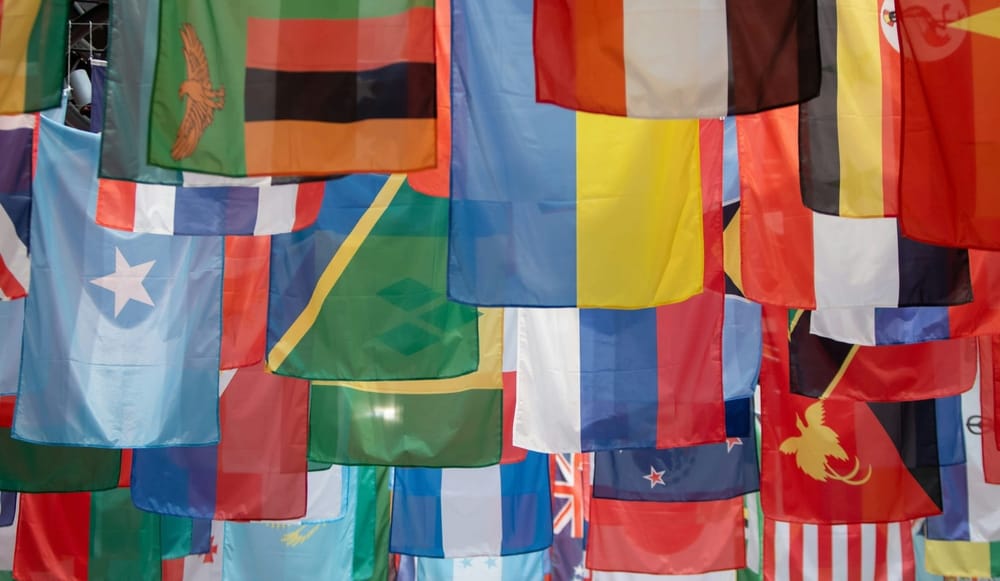Le Geneva Graduate Institute, avec le soutien généreux de la République et de l'Etat de Genève, annonce la publication de son dernier rapport, Paying for Multilateralism Amid Global Shocks : Le financement des organisations internationales à Genève, 2013-2023. Cette étude novatrice, rédigée par Livio Silva-Muller, Remo Gassmann et Guilherme de Franco, et qui s'inscrit dans le cadre des Geneva Policy Outlook, décrit les tendances de financement de 21 grandes organisations internationales à Genève sur la base de données uniques concernant plus de 25 000 contributions provenant d'au moins 1 000 bailleurs de fonds différents entre 2013 et 2023. Plus précisément, l'étude décrit le comportement des donateurs dans le contexte de quatre chocs exogènes : les élections américaines de 2016, le processus de Brexit de 2016 à 2020, la pandémie mondiale de 2020 et le conflit de 2022 en Ukraine. Le rapport s'appuie sur un ensemble de données entièrement mises à jour et révisées et constitue le deuxième rapport d'une série, contribuant à une analyse transparente du financement et à une réforme potentielle du multilatéralisme. Une première étude publiée en 2024 couvrait la période 2000-2020.
Dans un contexte d'incertitude fiscale croissante et de dépendance de plus en plus grande à l'égard des donateurs, le financement des organisations internationales basées à Genève est en crise. L'aide globale des États-Unis a chuté de manière drastique tandis que les gouvernements européens continuent de réduire l'aide au développement, ce qui a de sérieuses implications pour l'avenir de la coopération internationale. Ce ralentissement reflète des changements géopolitiques plus profonds et des défis structurels, rappelant brutalement la pression croissante qui pèse sur le système multilatéral. Ce rapport offre une analyse opportune des tendances de financement au cours de la dernière décennie. Il met en lumière la manière dont la Genève internationale a surmonté les chocs récents - des pandémies au Brexit, en passant par le premier mandat de Trump et la guerre en Ukraine - et ce que ces changements signifient pour le financement des organisations internationales basées à Genève.
Principales conclusions :
- Tendances générales du financement : Les contributions annuelles aux organisations internationales basées à Genève sont restées stables de 2013 à 2019 (15-17,9 milliards de dollars), avant d'augmenter à 21 milliards de dollars en 2020 et de chuter à 18,7 milliards de dollars en 2023. Le financement public a culminé à 18,7 milliards de dollars en 2020, mais a chuté à 15,9 milliards de dollars en 2023, reflétant des pressions budgétaires plus importantes. Les contributions privées ont augmenté régulièrement, passant de 1,3 milliard de dollars en 2013 à 2,3 milliards de dollars en 2023, soit en moyenne 11 % du financement total.
- Concentration des donateurs : Les 15 principaux bailleurs de fonds ont fourni plus de 86 % de toutes les contributions, principalement les gouvernements occidentaux, l'UE, le système des Nations unies et la Fondation Gates. Les pays du G7 et de l'UE représentent à eux seuls plus de 90 % des contributions, tandis que le reste du G20 et tous les autres pays ont contribué à hauteur de moins de 10 %. Les agences des Nations unies basées à Genève ont reçu environ 18 à 21 % du budget global des Nations unies et ont employé un tiers du personnel des Nations unies. Les agences humanitaires et de santé ont attiré la majorité des financements, recevant près de 91 % des contributions en 2021.
- Brexit et réforme de l'APD britannique : Suite au Brexit et à la fusion du DFID au sein du FCO, les contributions du Royaume-Uni ont diminué de près d'un milliard de dollars. Les coupes ont été particulièrement sévères pour les agences sanitaires et humanitaires.
- Les changements de financement des États-Unis : Les contributions américaines ont augmenté jusqu'en 2016, ont chuté brusquement en 2017 sous la première administration Trump, puis se sont redressées en 2018-2020. Le financement a de nouveau atteint un sommet en 2022 avant de chuter en 2023. Le niveau de dépendance de la Genève internationale à l'égard des dons américains s'élève en moyenne à environ 30 %, mais il varie d'une institution à l'autre.
- Pandémie de COVID-19 : Les contributions aux organisations de santé ont augmenté de 2 milliards de dollars en 2020. À lui seul, le COVAX a permis de récolter 12 milliards de dollars, les États-Unis étant le principal donateur. Les donateurs émergents tels que la Chine, l'Arabie saoudite et la Corée du Sud occupent une place importante. La part du secteur de la santé a atteint 46 % en 2020, mais est revenue à son niveau d'avant la pandémie en 2023.
- Guerre en Ukraine : Les contributions russes et ukrainiennes ont fortement diminué après 2022. Dans le même temps, les contributions aux agences humanitaires ont fortement augmenté. En 2023, alors que la plupart des secteurs ont subi des réductions de près de 20 %, le financement de l'aide humanitaire n'a diminué que de 4 à 5 %, ce qui témoigne de la priorité accordée par les donateurs à la réponse à la crise.
Lire le rapport complet :
Pour les demandes de renseignements sur les médias :
Pour plus d'informations ou pour des questions relatives aux médias, veuillez contacter : Prathit Singh, coordinateur de projet, Geneva Policy Outlook, prathit.singh@graduateinstitute.ch
Événement de lancement public :
Rejoignez-nous pour le lancement public de l'étude le mercredi 21 mai de 12h30 à 14h00.

